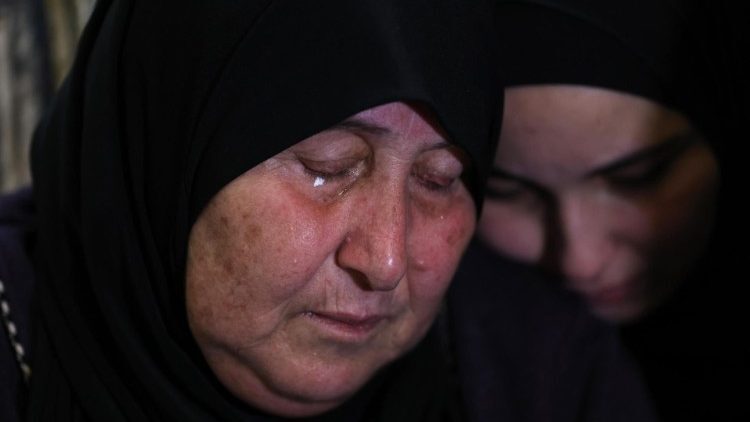Fears of an Israeli invasion growing in Jenin
In Jenin, a focal point of the conflict between Israeli forces and Palestinians in the West Bank, fear is reaching unprecedented levels. In the city, where the most critical and densely populated Palestinian refugee camp is located, with some 17,000 people facing difficult living conditions, 15 young people died in clashes with Israeli on 9 October alone.
Despite the presence of the “Freedom Theater”, a cultural institution founded together with some Israeli intellectuals in 2006 which has always sought dialogue between the two communities, hopes for reconciliation have faded.
“As I speak to you, we are sitting at home waiting for the invasion; we don’t know when it will happen or how. It could be during the day or at night. It could happen at any time,” said Professor Basha.
Some 20,000 people live in Jenin, with Christians numbering around 140.
“Our church was burned down and has never been restored. One of the hottest points of the conflict is concentrated right in front of our church,” he said.
Despite the suffering caused by the war and the temptation that many Christians in the territories have to emigrate, Prof. Basha is determined to stay in his hometown.
We count the victims but we are not numbers
Prof. Basha still has a vivid memory of 3 July 2023, when the Israeli army conducted the most massive attack on the area since 2002.
“It happened at 9:30 in the morning, while everyone was at school or at work. About 4,000 students were unable to leave their school until late at night. Today the whole city is surrounded by snipers, soldiers, and tanks. It’s terrible. We are at war. Fifteen Palestinians were killed here in a single day. We count the numbers,” Prof. Basha lamented, adding that they are not numbers but human beings.
“We have lost a lot of youths in Jenin, where roads, infrastructure, and traffic signs have been destroyed,” he said. “Palestinians are yearning for freedom.”
He then turned his thoughts to the children in Gaza and to a Christian woman, a Palestinian musician, who was killed while returning from church.
Walid Basha spoke about the many colleagues and friends he has in Gaza. Among them are the Sisters of the Rosary. Unfortunately, contacts are too difficult, and he has not heard from them for three weeks.
“What is happening there is terrible. We are witnessing a disaster,” he said. “Imagine thousands of people with only one bathroom; without water. We fear cholera, typhoid, tuberculosis, and coronavirus. Two days ago, three dogs were eating corpses in the streets.”
We want freedom
Meanwhile, academic activity inevitably continues online, with all students under stress.
“I speak for myself; there is no comfort in this situation,” Prof. Basha said. He lamented that the tragedy taking place in Gaza is ignored by the world.
“Everyone is watching, but nobody cares about the people in Gaza,” he said.
The Palestinian professor clarified that he is against those who kill and does not support Hamas, but only aspires to freedom and dignity and wants to be able to feel like a human being. “You cannot imagine what it means not to have the freedom to move. It is a disaster.”






